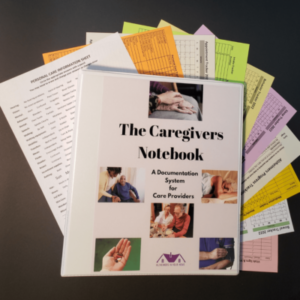Identifying and Understanding Alzheimers Stages
Alzheimer's Disease changes a person as the disease progresses. Alzheimers stages were identified by Medical experts from the different characteristics of the illness as it progressed and they categorized it into 3 main stages. Alzheimer's disease typically progresses slowly in three general stages — mild (early stage), moderate (middle stage), and severe (late stage).
Understanding the different stages of Alzheimer's Disease will help family members best meet the needs of their loved one with Alzheimer's Disease.
Alzheimer's Disease can sneak up on families who are unfamiliar with the warning signs. If you are concerned that a family member may be in the beginning stages of Alzheimer's Disease, please review the warning signs. There are treatments available to help slow the disease process and the sooner they are started the better the results.

Alzheimers Stages Early, Middle, Late
In the Alzheimers stage classified as early, the changes are subtle and may be contributed to the aging process. It is often in this stage the initial diagnosis is made. If family members are aware of the signs which may suggest the early stage of the disease, they are more apt to make a doctor's appointment for confirmation of their fears.

The middle stage of Alzheimer's Disease is probably the most difficult for family members. This is where the behaviors begin to occur. There are many different behaviors which may arise such as wandering, paranoia, aggressiveness, incontinence, insomnia, and anorexia just to name a few. Each person with the disease is different. Some people will only have a few of the behaviors whereas others seem to have every behavior imagined.
The later stage of Alzheimer's is the most physically demanding for the family. It is in this stage that complete care is usually required. The person in this stage may be chair or bedridden and are unable to participate in any activities of daily living. They are unaware of bowel and bladder functions. They often do not remember how to feed themselves and they will need to be fed at every meal. Communication skills are almost completely gone. It is usually at this stage when the caregiver can no longer physically take care of their loved one alone. This may be the time for long term care if there is not any outside help for the caregiver.
Alzheimers Stages Home Page Alzheimers Early Stage
Alzheimers Middle Stage Alzheimers Late Stage
Do you know what stage of Alzheimer's Disease your loved one is in?
Do you know what to watch for next?
Do you have sitters coming in and need to have a better system to help them provide the best care?
Does your loved one have behaviors that you should be tracking?
Do you have all of the information written down you need when you go to your doctor visits to help them understand what needs you may have?
Do you need help keeping track of appointments, medicines, vital signs, weights, meals, bowels, and behaviors?
Dementia - it's more than just memory loss. Are you prepared for what's next?
The ALZLOG App was created to help you recognize what stage your loved one is in and prepare for what is coming next for your loved one.
Come check out my YouTube channel for helpful tips and support on caring for loved ones with dementia. Let's navigate this journey together!


